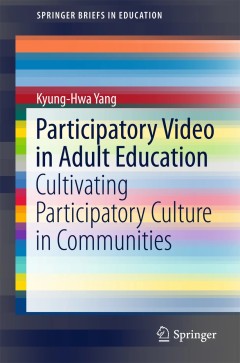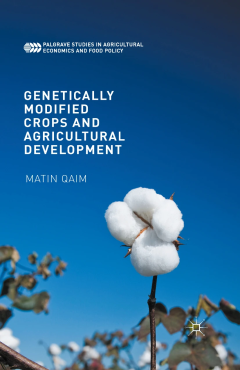Filter by

Re-engineering the Uptake of ICT in Schools
This book reports on a novel and comprehensive approach to the uptake of ICT in Schools. It focuses on key questions, pedagogically sound ways of introducing ICT, new technical artifacts supporting the approach, the evaluation in a large-scale validator, and future work. While many innovations in Technology Enhanced Learning (TEL) have emerged over the last two decades, the uptake of these inno…
- Edition
- -
- ISBN/ISSN
- 978-3-319-19366-3
- Collation
- -
- Series Title
- -
- Call Number
- 370

Genetics, Evolution and Radiation
This book is dedicated to the great scientist and outstanding individual Nikolay Wladimirovich Timofeeff-Ressovsky. The book brings together a number of brief stories/essays about Timofeeff-Ressovsky including “Stories told by himself”, and scientific chapters addressing his major research areas: genetics, radiobiology, radiation ecology and epidemiology, and evolution. Timofeeff-Ressovsky …
- Edition
- -
- ISBN/ISSN
- 978-3-319-48837-0
- Collation
- XX, 558
- Series Title
- -
- Call Number
- 363.92 GEN

Genetics of the Mouse
This book, written by experienced geneticists, covers topics ranging from the natural history of the mouse species, its handling and reproduction in the laboratory, and its classical genetics and cytogenetics, to modern issues including the analysis of the transcriptome, the parental imprinting and X-chromosome inactivation. The strategies for creating all sorts of mutations, either by genetic …
- Edition
- -
- ISBN/ISSN
- 978-3-662-44286-9
- Collation
- XVII, 408
- Series Title
- -
- Call Number
- 363.92 GUE g

Participatory Video in Adult Education : Cultivating Participatory Culture in…
This book highlights participatory video as an instrument for community-based adult education and focuses in particular on the role that it can play in promoting participatory culture among adult learners. In brief, participatory video refers to participant-centered video making. Today, participant-generated videos can travel farther and faster than ever before, and thus, the perspectives repre…
- Edition
- -
- ISBN/ISSN
- 978-981-10-1050-7
- Collation
- XII, 68 halaman
- Series Title
- Springer Briefs in Education
- Call Number
- 371.33 YAN p

Genetically Modified Crops and Agricultural Development
“This book is the second publication in the ‘Palgrave Studies in Agricultural Economics and Food Policy’ series, and targets both professional and lay audiences. … this book can be recommended to a wide readership; excellently written, it is one of the first books to address both the technical and policy dimensions of GMCs in development.” (George H. L. Rothschild, Food Security, Vol.…
- Edition
- -
- ISBN/ISSN
- 978-1-349-56167-4
- Collation
- XVII, 206
- Series Title
- -
- Call Number
- 330 QAI g

Integrated Supply Chain Planning in Chemical Industry
Thomas Kirschstein provides an overview on methods and approaches for planning and optimizing large-scale chemical production networks. The focus is on an integrated modelling of chemical production processes, logistical processes as well as environmental effects. Therefore, a hybrid simulation framework is designed taking into account time series models for modelling chemical production proces…
- Edition
- -
- ISBN/ISSN
- 978-3-658-08433-2
- Collation
- XXII, 245
- Series Title
- -
- Call Number
- 360 kir i

Re-enchanting Nationalisms: Rituals and Remembrances in a Postmodern Age
This book provides original insight into the way we now engage and remember national history. Drawing on fieldwork and analysis of international case studies on state commemoration, memorialization, recreational and tourism and times of disaster and crisis, the author demonstrates that not only does the nation frequently retain a strong cultural relevance in our global world but that the emerge…
- Edition
- -
- ISBN/ISSN
- 978-1-4939-2513-1
- Collation
- -
- Series Title
- -
- Call Number
- 301

Re-Telling Our Stories: Critical Autoethnographic Narratives
This book presents the collaborative work of two professors, one in Mexico and the other in the United States, and their respective students, participants in a Ph.D. course called “Critical Autoethnography.” The chapters emerged from virtual conversations as doctoral students and professors examined the intersections between critical pedagogy and autoethnography. They problematized the cult…
- Edition
- -
- ISBN/ISSN
- 978-94-6300-567-8
- Collation
- -
- Series Title
- -
- Call Number
- 371.3

Rationality and Operators: The Formal Structure of Preferences
This unique book develops an operational approach to preference and rationality as the author employs operators over binary relations to capture the concept of rationality. A preference is a basis of individual behavior and social judgment and is mathematically regarded as a binary relation on the set of alternatives. Traditionally, an individual/social preference is assumed to satisfy compl…
- Edition
- -
- ISBN/ISSN
- 978-981-10-1896-1
- Collation
- -
- Series Title
- -
- Call Number
- 330.16

A Practice-based Model of STEM Teaching: STEM Students on the Stage (SOS)
The STEM Students on the Stage (SOS)™ model was developed by Harmony Public Schools with the goal of teaching rigorous content in an engaging, fun and effective way. In this book, you will learn that the STEM SOS model is not only helping students learn STEM content and develop 21st-century skills, but also helping teachers improve their classroom climate through increased student-teacher com…
- Edition
- Ed. 1
- ISBN/ISSN
- -
- Collation
- -
- Series Title
- -
- Call Number
- 370 PRA p
 Computer Science, Information & General Works
Computer Science, Information & General Works  Philosophy & Psychology
Philosophy & Psychology  Religion
Religion  Social Sciences
Social Sciences  Language
Language  Pure Science
Pure Science  Applied Sciences
Applied Sciences  Art & Recreation
Art & Recreation  Literature
Literature  History & Geography
History & Geography